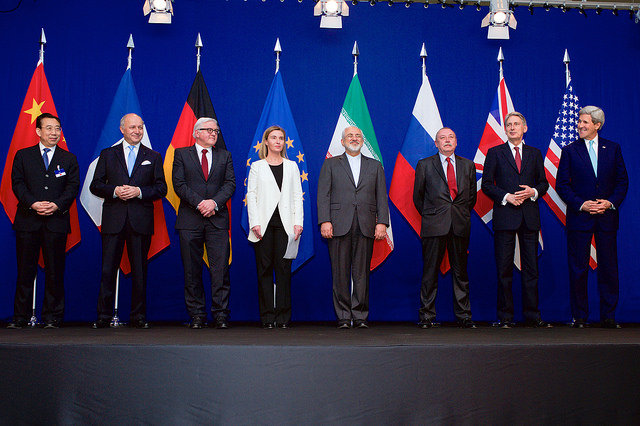Nuclear deal signatories in litmus test, lessons for North Korea

U.S. President Donald Trump railed against the Iran nuclear deal as he recently made his maiden speech to the United Nations, calling it an "embarrassment" to his country, the likes of which he said had never been seen before. Trump also threatened to "totally destroy" North Korea, hitting an unprecedented level of political brinkmanship with the country.
While Trump juxtaposed the two countries under the banner of rogue regimes, there is a fallacy at the heart of it. For more than a decade, Iran was subjected to fear-mongering and demonizing rhetoric for, inter alia, its so-called nuclear ambitions. Putting to rest worries, Tehran opted for a different path in July 2015, striking a nuclear accord with six world powers including Washington. Officially known as the Joint Comprehensive Plan of Action (JCPOA), the deal swept away all nuclear-related sanctions against Tehran in exchange for curbs on its nuclear program.
Endorsed by UN Security Council Resolution 2231, the accord has subsequently left Iran at the mercy of the international nuclear watchdog for inspections of its installations just in case. Thus far, the atomic body has verified Tehran's commitment to the JCPOA in eight consecutive reports, confirming with surgical precision that the multilateral effort is working effectively. The most recent one was on September 11.
In stark contradiction to the peaceful resolution of Iran’s nuclear dossier, the North Korean case has been smoldering for years. Since its first nuclear test in October 2006, Pyongyang has continued building up its nuclear arsenal away from the IAEA's watchful eye. It announced the detonation of a sixth nuclear bomb in September 2017, the most powerful underground blast ever conducted by the country. Pyongyang has also goaded neighboring nations by test-launching intercontinental ballistic missiles (ICBM) in September, prompting a new round of sanctions under UN Resolution 2375.
The situation has caused a nasty war of words between the leaders of the two nations from “dotard” (Kim Jong-un referring to Trump) to “Rocket Man” (Trump referring to Kim Jong-un), turning the entire region and world into a tinderbox. That’s bad news. But the good news is that U.S. Secretary of State Rex Tillerson told reporters last week in China, North Korea’s linchpin ally, that "We have lines of communication to Pyongyang. We're not in a dark situation, a blackout."
While the situation may not be an unavoidable blackout, neither is it promising. To end the North Korean deadlock, there must be more than openness to negotiation. The way Washington handles the Iran nuclear deal should be factored into the success rate of any future talks with Pyongyang. North Korea should have by now internalized important lessons from the fate of the JCPOA. If, despite Tehran’s commitment to the deal, Trump follows through on his promise to decertify the agreement, which comes due mid-October, then he will be dealing a major blow to de-escalation efforts with North Korea, as well.
U.S. Chairman of the Joint Chiefs of Staff Marine Gen. Joseph Dunford recently made a case for keeping the JCPOA in place, implicitly saying that it would "make sense to him" to recertify it, as withdrawing would have ripple effects on the North Korea nuclear crisis.
The current situation demands judicious decision-making on the part of Washington, as any effort to undermine the Iran nuclear deal makes it more difficult for a peaceful resolution to the North Korean nuclear crisis. This, in turn, endangers both the entire Middle East and the Korean peninsula, exposing vulnerable U.S. allies to irreparable damage.
A report by The Washington Post revealed that Trump is expected to announce next week that he will “decertify” the nuclear pact, passing the buck to the Congress to decide its fate in a 60-day period.
The decertification will prove a litmus test for both the Congress and the other signatories to the deal, who reportedly are not taken kindly to the Trump administration in this regard. Iran has already won the game both at home and abroad by exposing the long-standing hostility of Washington and rigidly committing to the deal.
*Ali Kushki is a peace activist.
Leave a Comment